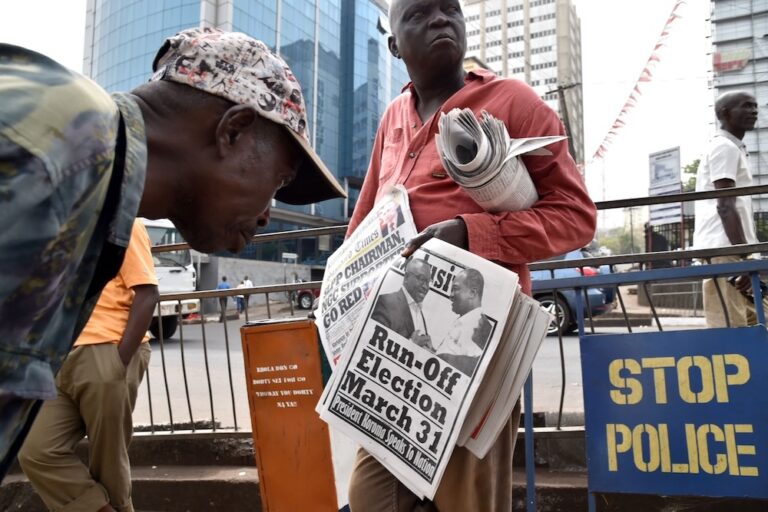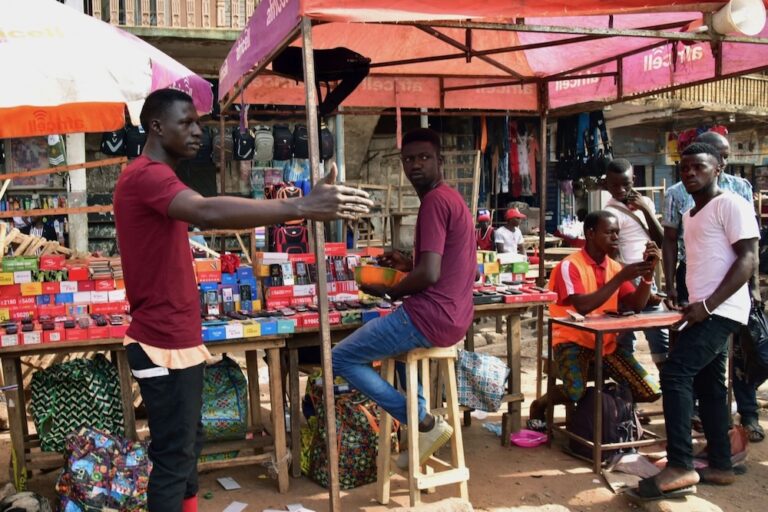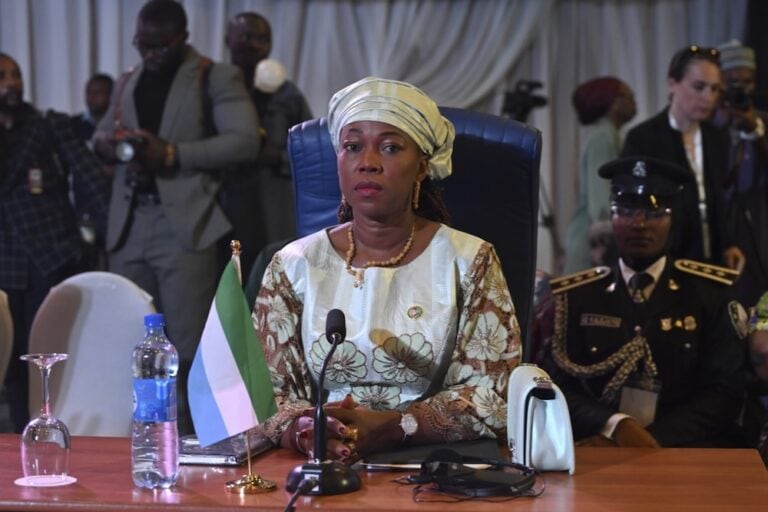(RSF/IFEX) – Reporters Without Borders has welcomed the release of Paul Kamara, the founder and editor of the independent daily “For Di People”, after 14 months in prison, and urged the government to keep it promises of democracy and put an end to its repression of the news media. “After more than a year of […]
(RSF/IFEX) – Reporters Without Borders has welcomed the release of Paul Kamara, the founder and editor of the independent daily “For Di People”, after 14 months in prison, and urged the government to keep it promises of democracy and put an end to its repression of the news media.
“After more than a year of waiting and suffering, Paul Kamara is finally being reunited with his family and his newspaper,” the press freedom organisation said. “We hope this day will mark the end of a dark era for Sierra Leone’s press and that President Ahmad Tejan Kabbah’s promise in early October to amend the press law will be carried out.”
Reporters Without Borders added: “Any further serious press freedom violations such as the imprisonment of one of the country’s most respected journalists would cause irreversible harm to Sierra Leone.”
Kamara was released yesterday by the Freetown appeal court, which overturned his 5 October 2004 conviction by judge Bankole Rachid, who had sentenced him to two 24-month sentences for “seditious defamation.” He left the court smiling, accompanied by his wife and daughter, the staff of his newspaper, other journalists and his lawyer.
Reporters Without Borders had from the outset issued repeated calls for the release of Kamara, who had filed an appeal on 23 October 2004 from Freetown’s Pademba Road prison, where he was incarcerated immediately after his conviction.
Kamara was convicted under a draconian 1965 law known as the Public Order Act as a result of an action brought by President Kabbah over an article published in “For Di People” on 3 October 2003 headlined, “Speaker of Parliament challenge! Kabbah is a true convict!”
The article said a commission of enquiry had found Kabbah guilty of fraud in 1968 when he was permanent secretary in the ministry of Trade, and argued that it was unconstitutional of the parliamentary spokesman to claim that Kabbah now had immunity as president.


